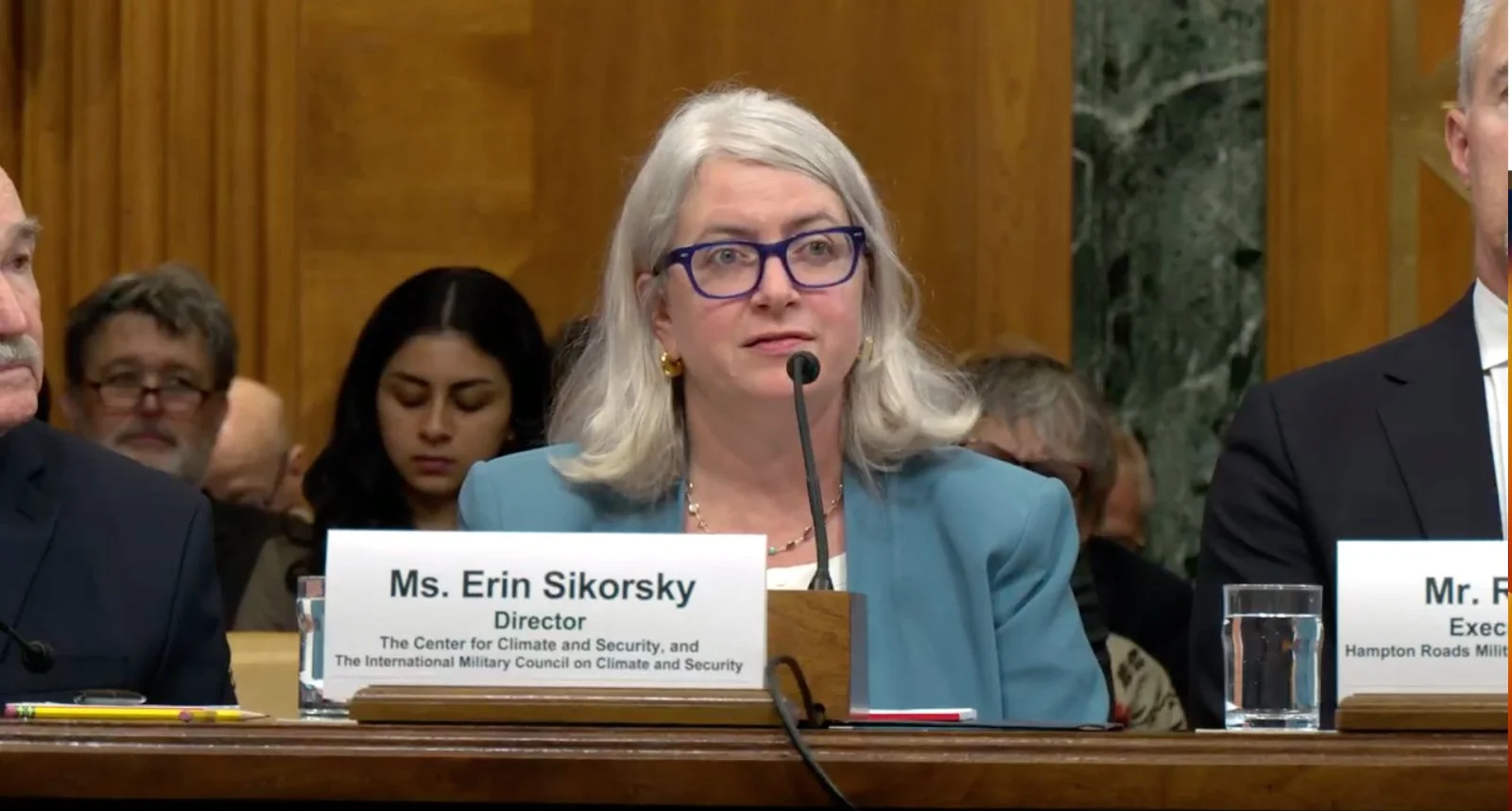Climate Migration Council’s Erin Sikorsky Testifies before US Senate & UK Parliament
Last week, Climate Migration Council (CMC) founding member Erin Sikorsky – director of The Center for Climate and Security and The International Military Council On Climate and Security – appeared before the U.S. Senate Committee on the Budget and the UK Parliament Environmental Audit Committee to discuss the connections between climate change and national security.
Sikorsky’s testimony centered around climate migration and the national security implications of the climate crisis and major weather events. In her testimony before Parliament, Sikorsky highlighted the human impact and security risks stemming from climate migration patterns.
“The migrants themselves are not the security risk,” said Sikorsky. “Instead, it’s the strain on governments and resources within developing countries where they are migrating from rural to urban areas. The second risk is destabilizing and reactive political responses to those migrants… third is the weaponization of migration by political actors.”
In her testimony before Parliament, Sikorsky provided insight into how climate change is regarded as a security risk in the United States.
“The U.S. government has put climate change and national security at the front of its foreign security policy agenda under [President Joe] Biden,” Sikorsky said. “The State Department and Department of Homeland Security have been involved in this ‘whole government’ approach led by the National Security Council.”
In her hearing before the U.S. Senate Committee on the Budget, Sikorsky stressed the impact of climate-related events on military response and activity.
“In the past 22 months, The Center for Climate and Security’s Military Responses to Climate Hazards Tracker ... has identified nearly 300 deployments by militaries in 74 countries to fight fires, rescue citizens from floods, deliver water or participate in other hazard-related activities," Sikorsky said. "Here in the U.S., troops have deployed 70 times since June 2022, and of course, the U.S. military has also responded globally during that time period.”
Sikorsky’s testimony before the U.S. Senate and UK Parliament exemplifies the critical role that Climate Migration Council members play in shaping the global dialogue on climate change and underscores the CMC’s commitment to ensuring that the human impacts of climate change remain a focal point in policymaking. The CMC’s recently releasedCompendium on Climate Mobility further elaborates on the nexus between national security and climate change with respect to human mobility. Through testimony like Sikorsky’s and resources like the Compendium on Climate Mobility, Climate Migration Council members are highlighting the urgency of addressing these interconnected challenges and reinforcing the importance of placing people at the heart of climate policy discussions.

